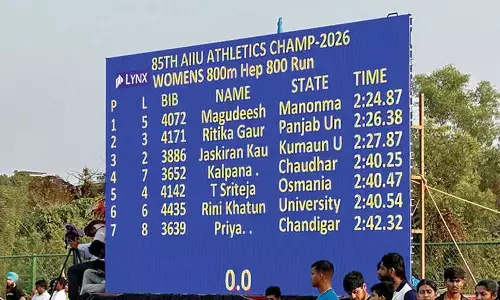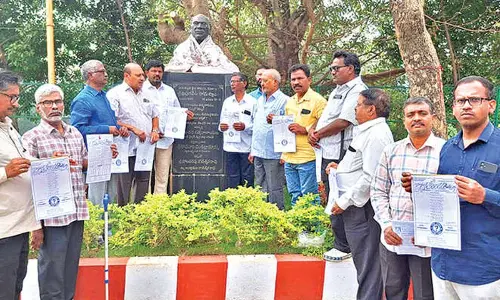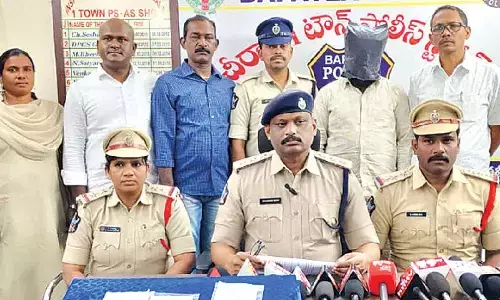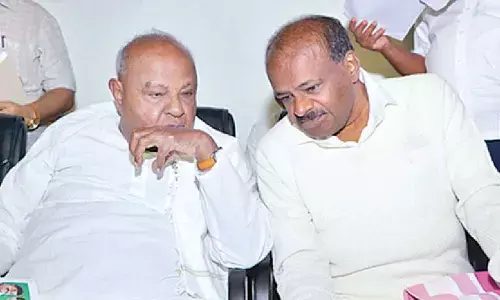Respect the Constitution; Don't deride Election Commission
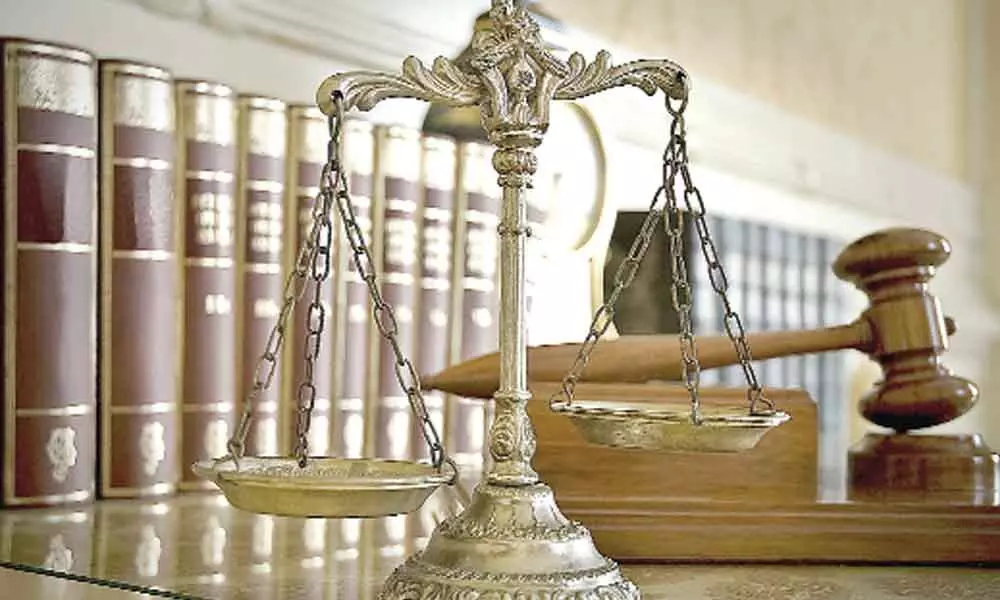
This appeal is addressed to all parties irrespective of their colour, region or status. The appeal is simple: Please respect the Constitution of India and different bodies created under it.
This appeal is addressed to all parties irrespective of their colour, region or status. The appeal is simple: Please respect the Constitution of India and different bodies created under it. It is necessary to do so because the Constitution is the harbinger of our country's growth and prosperity. It is a document reflecting the hopes and aspirations of the largest democracy in the world. On the other hand, different organs created under the Constitution are its hands and legs to realise the lofty ideals enshrined in the Constitution. Therefore, due respect to the constitutional bodies and other statutes is necessary. It is not the case of respecting one individual or organisations attached to such a body, but it is a question of the maturity of minds.
Today, when the elections at different levels are underway, more often than not the Election Commission at the Centre as well as at State level is targeted by the political parties; mostly those who are on the losing track. The allegations of discrimination, bias and being a puppet in the hands of ruling parties do not halt there but also engulf the police, security and even defence forces, besides other departments of the government.
Such a trend, unfortunately of late, has been growing, which is a matter of great concern. The political differences, compulsions and opportunism become the motive behind such reckless, baseless and uncharitable allegations against the Constitutional bodies and government arms. Indeed, the need of the hour is to exercise restrain by all the concerned political parties, candidates and their supporters.
In fact, going by the experience of so many elections, it appears that the tendency to deride and defile the Constitutional bodies and the people occupying Constitutional positions goes un-arrested because there are no built-in safeguards, leave alone stringent provisions in the Constitution to arrest such tendencies. No doubt, the Constitution in a dignified manner speaks of the citizens' duties; but these provisions are merely in the form of advisory and not mandatory. The political parties understand only the language of danda. Therefore, unless stricter penal provisions are inserted in the Constitution such elements, be in politics, business and industries or services cannot be set right. The freedom of expression cannot be allowed to percolate down to be the criminal freedom of expression thereby endangering the very soul and body politic of the nation.
SC advices caution while passing interim orders
A three-judge bench comprising Justice DY Chandrachud, Justice MR Shah and Justice Khanna has observed that the High Courts should restrain themselves from passing the interim orders of 'not to arrest' or 'no coercive steps to be adopted' when the investigation of a case was in progress and the facts were hazy and the entire evidence was not before the High Courts. The apex court issued a slew of guidelines while disposing of the case titled, Neeharika Infrastructure Pvt Ltd vs State of Maharashtra by its order of April 13.
SC guidelines on cheque bounce cases
The cheque bouncing law, as it is known to a common man is on the way of refining. As a first step towards this direction, on April 16, a Constitution bench headed by the Chief Justice of India (CJI), while accepting several recommendations of Amici Curiae, issued several guidelines to courts in a suo motu case titled: Expeditious Trial of Cases Under Section 138 of Negotiable Instruments Act. Following are some of the guidelines among others:
l The High Courts to issue practice directions to the Magistrates to record cogent and sufficient reasons before converting the complaints u/s.138 of the NI Act from summary trial to summons trial.
l Inquiry shall be conducted on receipt of the complaints u/s.138 of the Act to arrive at sufficient grounds to proceed against the accused when such accused resides beyond the territorial jurisdiction of the court.
l For the conduct of inquiry under Section 202 of CrPC, evidence of witnesses on behalf of the complainant shall be permitted to be taken on affidavit. In suitable cases, the Magistrate can restrict the inquiry to examination of documents without insisting for examination of witnesses.
l Suitable amendments are recommended to be made to the Act for provision of one trial against a person for multiple offences u/s.138 of the Act committed within a period of 12 months, notwithstanding the restriction in Section 219 of CrPC.
l The High Courts are requested to issue practice directions to the trial courts to treat service of summons in one complaint u/s. 138 forming part of a transaction, as deemed service in respect of all the complaints filed before the same court relating to dishonor of cheques issued as part of the said transaction.
l The apex court reiterated that there is no inherent power of trial courts to review or recall the issue of summons. However, this does not affect the power of the trial court u/s. 322 of CrPC to revisit the order of issue of process in case it is brought to the court's notice that it lacks jurisdiction to try the complaint.
CJI quotes Ambedkar on official language
Speaking at the inauguration of the academic building of the Maharashtra National Law University at Nagpur on April 14, the Chief Justice of India, SA Bobde, said that Dr BR Ambedker had proposed Sanskrit as the official National Language of India as he understood the political and social issues well and knew what the people wanted. However, he added that he cannot recall whether this proposal which had signatures of some maulvis, pandits, priests and Ambedkar himself was tabled in the Constituent Assembly.
Batting for India's rich heritage, the CJI said: "The Indian Judicial System was inherited from the British which uses logic and the origin of logic is Aristotle. But the 'Nyay Shastra' which was developed in India is not the least bit inferior to Aristotle or the Persian system of logic."
'Day-dreaming' lawyer's plea dismissed by HC
She wanted to marry Prince Harry of UK and sought legal action in this regard The Punjab and Haryana High Court pooh-poohed the laughable attempt of a lady advocate who sought legal action against Prince Harry and others for the alleged offence of breach of promise to marry her, and also an arrest warrant against the Prince. Justice Aravind Singh Sangwan conceding to the request of the petitioner, Palwinder Kaur, agreed for the actual hearing in the court in the case titled: Palwinder Kaur Vs. Prince Harry Middleton & Others decided on April 8.
Adverting to the allegations, the learned Judge observed: "I find that this petition is nothing but just a day-dreamer's fantasy about marrying Prince Harry." The court further observed: "It is well-known fact that fake IDs are created on various social media sites like Facebook, Twitter etc; and authenticity of such conversation cannot be relied upon by this court. There is every possibility that so-called Prince Harry may be sitting in a cybercafé of a village in Punjab, looking for greener pastures for himself."
Ultimately, expressing sympathy for the petitioner that she believed such fake conversation to be true, the court went on to dismiss the petition.










